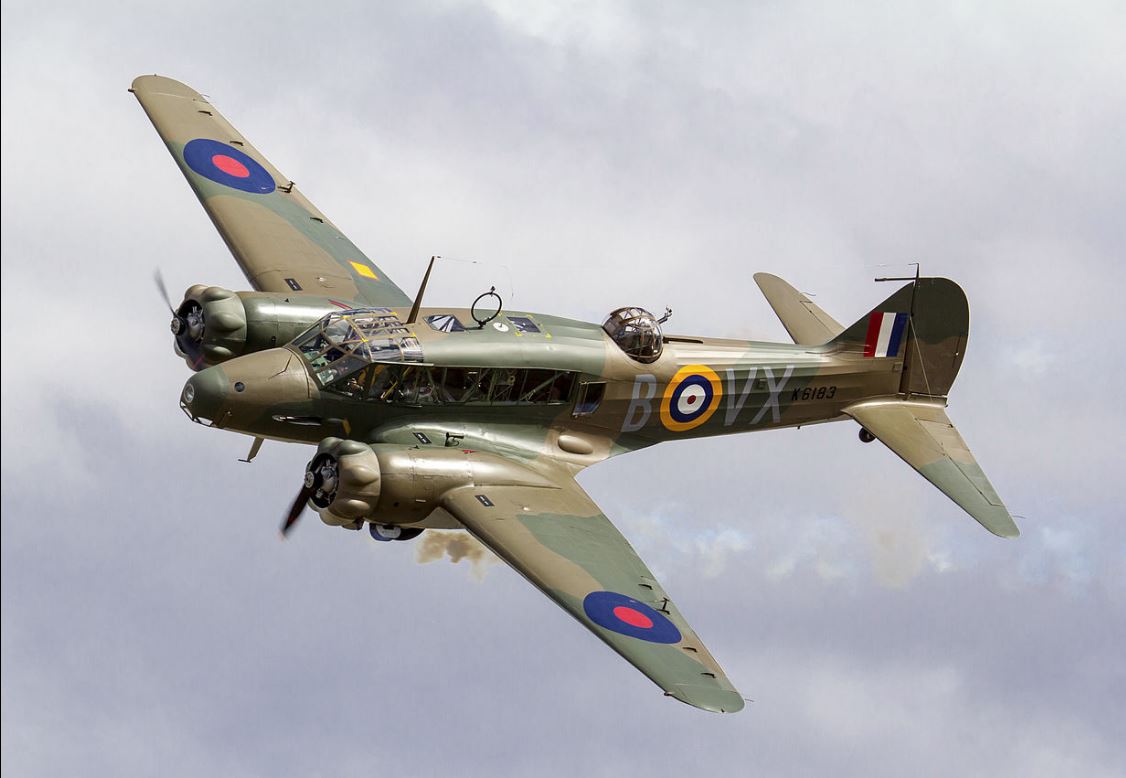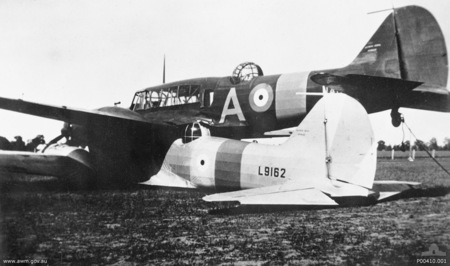Avro Anson
From Our Contribution
Remarks
Originally intended as a cheap landplane for maritime reconnaissance to supplement the more expensive flying boats. Avro at that tme had a civilian twin engine, six seater aircraft capable of being modified. Evaluated against the de Havilland DH.89M in May 1935, the Avro proved to be superior and an order for 174 aircraft was issued. On 31 Dec 1935 the first production aircraft performed its maiden flight. Along the way a number of changes to its designed had enhanced its performance from its civilian model.
One of the early planes to feature a retractable undercarriage, although it took the pilot 144 turns of a crank handle to lower or raise the undercarriage. With the undercarriage down the plane was 50 Km/h slower. When on reconnaissance duty the crew numbered three - a pilot, a navigator, bomb aimer, and a radio operator/gunner. Later the crew was increased to four with the bomb aimer and Navigator now separate roles. By the outbreak of the war the RAF had 824 Ansons flying in 26 squadrons. Crews destined to crew larger bomber aircraft began by flying Ansons. As numbers of these larger aircraft came on line the role of the Anson was as a training aircraft, and to ferry pilots to and from aircraft collection points.
The RAAF operated a total of 1,028 Ansons, as late as 1955. Post war the aircraft were used as light transports and executive aircraft, with manufacture continuing until 1952. On 29 September 1940, Avro Ansons L9162 and N4876 of No. 2 Service Flying Training School RAAF collided in mid-air and became locked together in flight. A successful emergency landing was made at Brocklesby, New South Wales. L9162 became a ground instructional airframe, whilst N4876 was repaired and returned to service. (see photo above)
General characteristics
- Crew: Three or four
- Length: 12.88 m
- Wingspan: 17.22 m
- Height: 3.00 m
- Empty weight: 2,500 kg
- Max takeoff weight: 3,900 kg
- Powerplant: 2 x Armstrong Siddeley Cheetah radial engines, 350 hp each
- Maximum speed: 392 km/hr
- Range: 1,271 km
- Service ceiling: 5,791 m
- Armament
- Guns: 1 x 7.7mm machine gun in front fuselage, 1 x 7.7mm Vickers machine gun in dorsal turret.
- Bombs: 163 kg
Air Crew
No. 67 Squadron RAAF
- Alfred Arthur Shepherd 30 Apr 1943 - 29 May 1944
No. 73 Squadron RAAF
- Stanley Neil Butcher 17 Jan - 20 Aug 1944
No. 4 Service Flying Training School RAAF Geraldton
- Clifford Stanley Douglas 11 Mar - 26 Jun 1941
- Gerard Henzell Straughan Hemy May - Jun 1941 RAAF Air Navigation School
- † Frank Keith Morcombe DFC 2 Jun 1941 - 21 Sep 1941
- Roy Joseph Smith 3 Jun - 19 Sep 1941
- Alfred Arthur Shepherd 26 Oct 1942- 5 Feb 1943
- † Greer Winton Ottaway 14 Mar - 1 Jul 1943
Ground Crew
No. 14 Squadron RAAF Pearce
- † Herman Fred Sass 13 Feb 1939 - 16 May 1940
- Laurence Harold Smith 20 Nov 1944 - 25 Nov 1945
No. 2 Service Flying Training School RAAF Wagga Wagga
- Alfred Ensor Hand 1 Mar - 6 Apr 1942
No. 4 Service Flying Training School RAAF Geraldton
- Laurence Harold Smith 31 May 1945 - 27 Jun 1945 detached from 14 Sqn
No. 6 Service Flying Training School RAAF Mallala
- Vernon Wallace Marsh 1944
No. 7 Communication Unit RAAF
- Stanley Gordon Devereux 18 Dec 1943 - 17 Mar 1946

